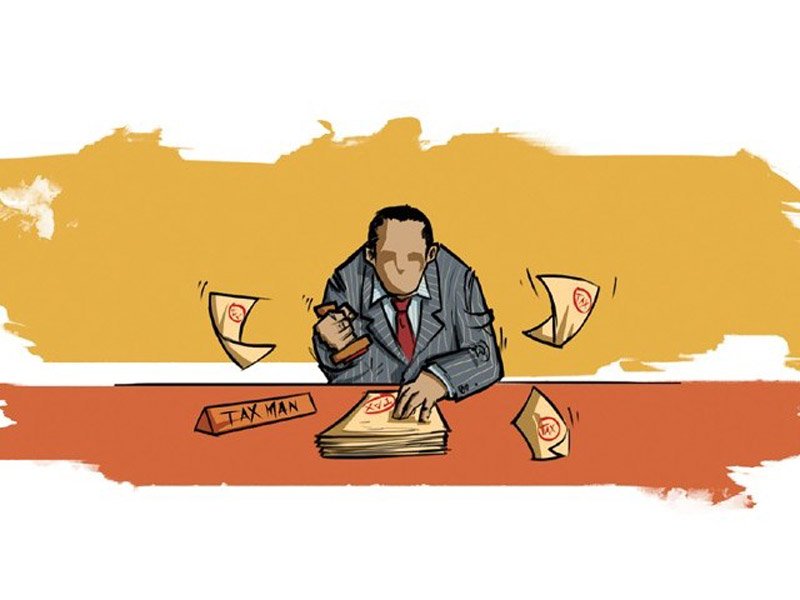
The federal government is set to impose 5% to 10% additional regulatory duty on dozens of imported luxury and essential items and will slash development spending by at least 15% as part of an agreement with the International Monetary Fund (IMF).
Some 283 items that are expected to be subject to the additional levy are imported fruits, dairy products, marbles, refrigerators, other electric appliances and wooden furniture, which the government insists are part of luxury products.
The government has assured the IMF that it will apply a combination of expenditure cuts and additional revenue measures to remain within the budget deficit target of 4.9% of GDP. The cut will be applicable only to the development budget, which will be reduced by at least Rs75 billion, roughly 15%.
The decision was taken in Dubai despite the fact that the IMF allowed the government to lower its tax collection target to Rs2.691 trillion, which is Rs119 billion less than the goal set in the budget just seven months ago.

Preparations are under way to levy 5% to 10% additional regulatory duty on cosmetics, imported food items like chocolates, beverages, mechanical and electrical appliances, said a senior official of the Federal Board of Revenue (FBR).
He said that besides the additional regulatory duty, other measures were also under consideration, but a final decision will be taken by Finance Minister Ishaq Dar, who is still in Dubai.
The impact of these measures would not be earth-shaking, insisted another senior government official.
On all these items – 283 of them to be precise – the PML-N government has already slapped 5% additional regulatory duty in the financial year 2014-15 budget, which was announced in June.
The latest move is aimed at generating additional revenues and this time it is not being used as a tool to curb imports, said the officials.
IMF’s outgoing mission chief to Pakistan Jeffery Franks said on Thursday that Pakistan agreed on taking additional measures to boost the FBR’s revenues.
Some of the other items that could be subject to the regulatory duty are imported vegetables, perfumes, cosmetics, toothpaste, shaving products, cooking ranges, ceiling fan, pedestal fan, table fan, exhaust fan, freezers, water dispensers, fully automatic machines, food grinders, fruit mixers, fruit or vegetable juice extractors, hair dryers, microwave ovens, coffee or tea makers, toasters, wooden cabinets, beds, electric table and desk, etc.
It will be the third such move in the last two months. Earlier, as against the standard sales tax rate of 17%, the government enhanced it to 27% on petrol, HOBC, light diesel oil, high-speed diesel and kerosene in two phases aimed at recovering about Rs28 billion from the consumers.
In its second move, the government imposed 15% regulatory duty on the import of steel products, billets, bars and wire rods, 5% regulatory duty on cold-rolled coils and galvanised platted sheets, and Rs200 per set duty on cellphones.
The second step was taken to generate Rs4 billion in the current fiscal year.
The FBR revenues are falling short of the target due to reduced oil prices, weak enforcement by the tax machinery, politically motivated tax concessions and lax enforcement of existing laws.
In the first seven months of the current fiscal year, the FBR pooled Rs1.339 trillion, which was just 47.6% of the original target of Rs2.810 trillion.
The government is facing criticism for burdening the existing taxpayers and increasing indirect taxes instead of broadening the base.
The officials said it was still not clear whether the authorities will be able to achieve the downward revised target of Rs2.691 trillion even after levying additional duties.
The development budget of Rs525 billion may be reduced but the amount of reduction has not been finalised yet, said Minister of Planning and Development Ahsan Iqbal.
An official of the finance ministry said that the quantum of revised development budget will be decided after the end of the third quarter.
Published in The Express Tribune, February 7th, 2015.
Like Business on Facebook, follow @TribuneBiz on Twitter to stay informed and join in the conversation.
COMMENTS (1)
Comments are moderated and generally will be posted if they are on-topic and not abusive.
For more information, please see our Comments FAQ



1732184775-0/BeFunky-collage-(80)1732184775-0-165x106.webp)













They should impose taxes on expensive smart phones. Phones that cost say greater than 40,000. Also double taxes on Apple products :P